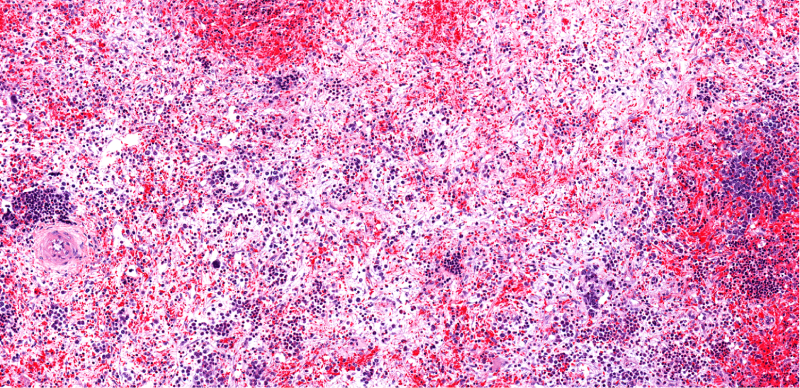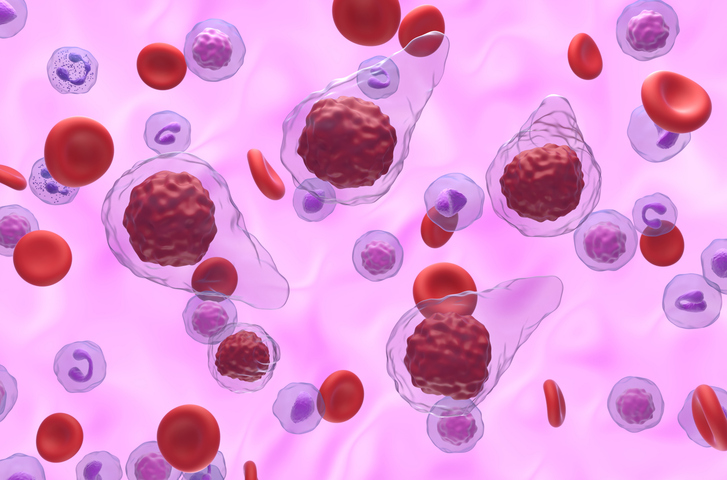
Among patients with functional iron-deficiency anemia due to myelofibrosis-related hepcidin dysregulation, treatment with zilurgisertib, an activin receptor–like kinase-2 (ALK2) inhibitor, was “generally well tolerated” and led to reduced hepcidin levels either alone or in combination with ruxolitinib, according to a presentation at the 65th ASH Annual Meeting and Exposition.
The greatest level of hepcidin control over time was observed at higher zilurgisertib doses, noted the study’s lead author, Sanjay Mohan, MD, MSCI, of the Vanderbilt University School of Medicine in Nashville, Tennessee.
The phase I/II dose-escalation and -expansion study enrolled 36 patients by the data cutoff of February 15, 2023. Of those patients, 20 received zilurgisertib monotherapy and 16 received zilurgisertib plus rituximab. The monotherapy group had a median age of 73 years (range, 53-84) and the combination group had a median age of 75.5 years (range, 54-85).
At baseline, the median hemoglobin in the monotherapy group was 7.7 g/dL (range, 7-10) and the combination group had a median hemoglobin of 8.0 d/gL (range, 5-9). Baseline hepcidin was 171 ng/mL (range, 13-535) and 126 ng/mL (range, 7-421) in the monotherapy and combination groups, respectively.
The greatest reduction in hepcidin following zilurgisertib exposure occurred after six to eight hours, and the highest doses tested in both groups induced more effective suppression of hepcidin over time. In patients who were transfusion independent in both groups, hemoglobin values increased from baseline by more than 1.5 g/dL. Grade 3 or higher treatment-emergent adverse events occurred in 11 patients; thrombocytopenia in four patients was the most common.
Overall, zilurgisertib monotherapy or alongside ruxolitinib was well tolerated and improved measures of anemia related to myelofibrosis in this patient population, Dr. Mohan and colleagues summarized.
Reference
Mohan S, Oh S, Kiladjian JJ, et al. Phase 1/2 study of the activin receptor-like kinase-2 inhibitor zilurgisertib (INCB000928, LIMBER-104) as monotherapy or with ruxolitinib in patients with anemia due to myelofibrosis. Abstract #624. Presented at the 65th ASH Annual Meeting and Exposition; December 9-12, 2023; San Diego, California.






 © 2025 Mashup Media, LLC, a Formedics Property. All Rights Reserved.
© 2025 Mashup Media, LLC, a Formedics Property. All Rights Reserved.